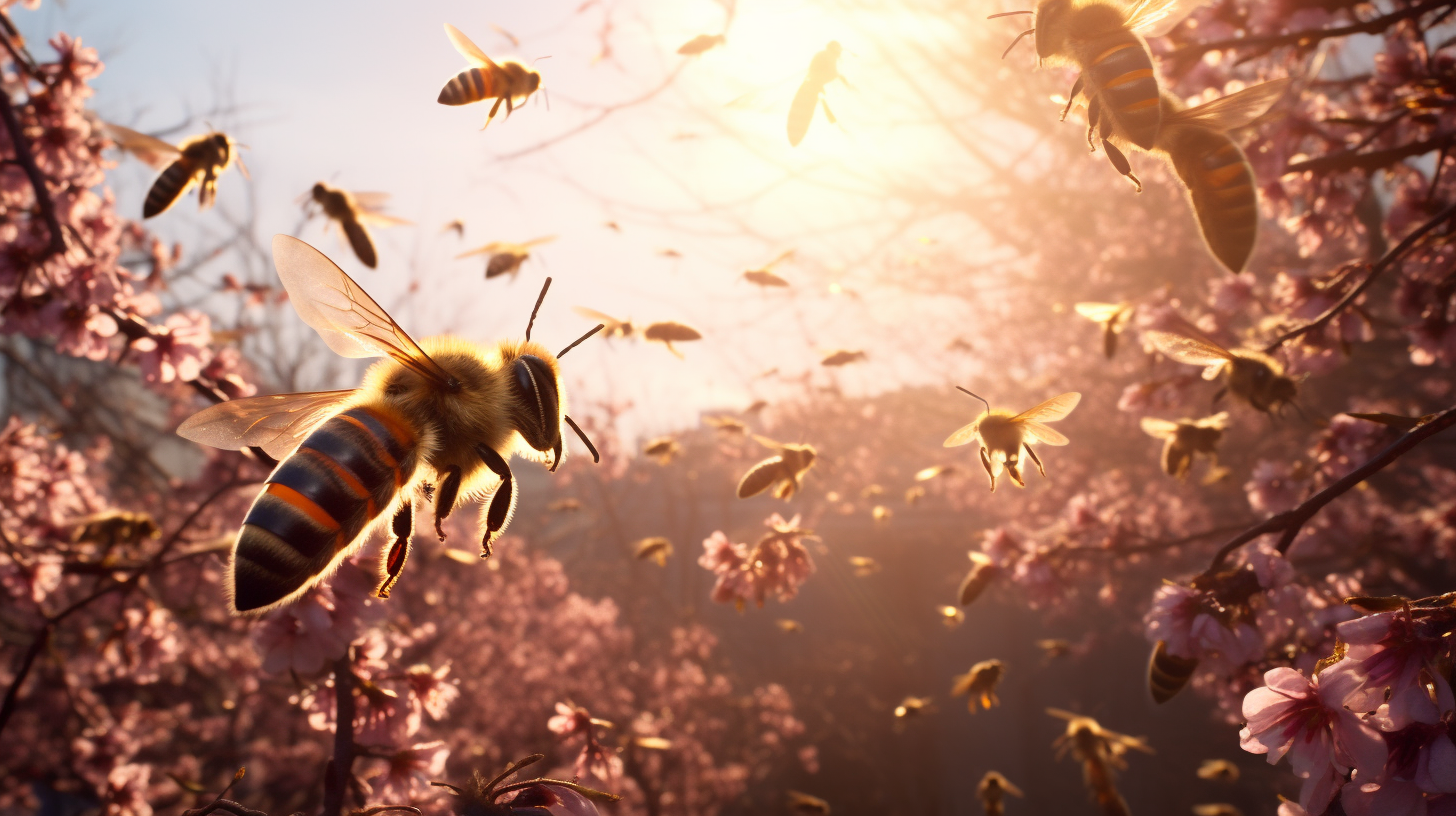Under silvery skies, a haunting stillness pervades the once-buzzing landscapes. Where flora wildly danced with the vibrant hum of bees, there remains a hushed world — the almost sacred whispers are now just echoes. Welcome to a requiem for an era where pollinators flourished, their ceaseless labor a cornerstone of life itself. Now, we stand as silent witnesses to ‘The Bees’ Final Buzz’, a chilling testament to their perilous fade into obscurity.
The spellbinding symphony of pollination previously sustained our biodiverse Eden, with bees as its maestros. Apis mellifera, the venerated honeybee, once a ubiquitous icon of nature’s productivity, now finds itself on the brink of becoming a mythical vestige of the past. These tireless beings, whose mere existence bolstered ecosystems, are succumbing to a world poisoned by human recklessness.
The causes? Multifaceted and menacing. Pesticides serving as warfare agents against pests, unwittingly become poisons lacing the nectar of survival. Habitat destruction tears through the tapestry of their floral havens, while climate change unfurls a carousel of weather extremes, each turn challenging their resilience.
The consequences are far-reaching and grim. Crops stand in the fields, their flowers’ virgin blossoms yearning for a touch that never comes — the dire implication of a world bereft of natural pollinators.
Yet humans, ever the architects of their destiny — and destruction — attempt to wield the tools of technology. Robotic pollinators hover in fields, their mechanical whirring a stark contrast to the delicate wingbeats of a bee. We delve into the realm of gene editing, seeking to craft sturdier bees, not understanding that it is not the bee that needs redesigning, but our ethos.
Amidst this desolation, pockets of resistance arise. Rewilding initiatives take root, determined not to let the dirge of the bees be the finale of our narrative. ‘Guerrilla gardeners’ scatter seeds of wildflowers in urban cracks, their acts of defiance brightening gray expanses. And yet, with each new wildflower blooms the daunting query — will our attempts at rewilding be enough?
In this elegy, we do not seek to console with false hope. Instead, we depict a stark panorama where the fate of bees mirrors our own — a future marred by the echoes of neglect. This article pays homage to the marvel that bees once represented and serves as a memento of what is slipping through our fingers like grains of sand in an hourglass of apathy.
We invite readers to a sobering realization; our survival is irrevocably tied to that of the bees. In their ‘final buzz’, we are faced with a reflection — of choices made, paths taken, and a clarion call to action that might already be sounding its last.
